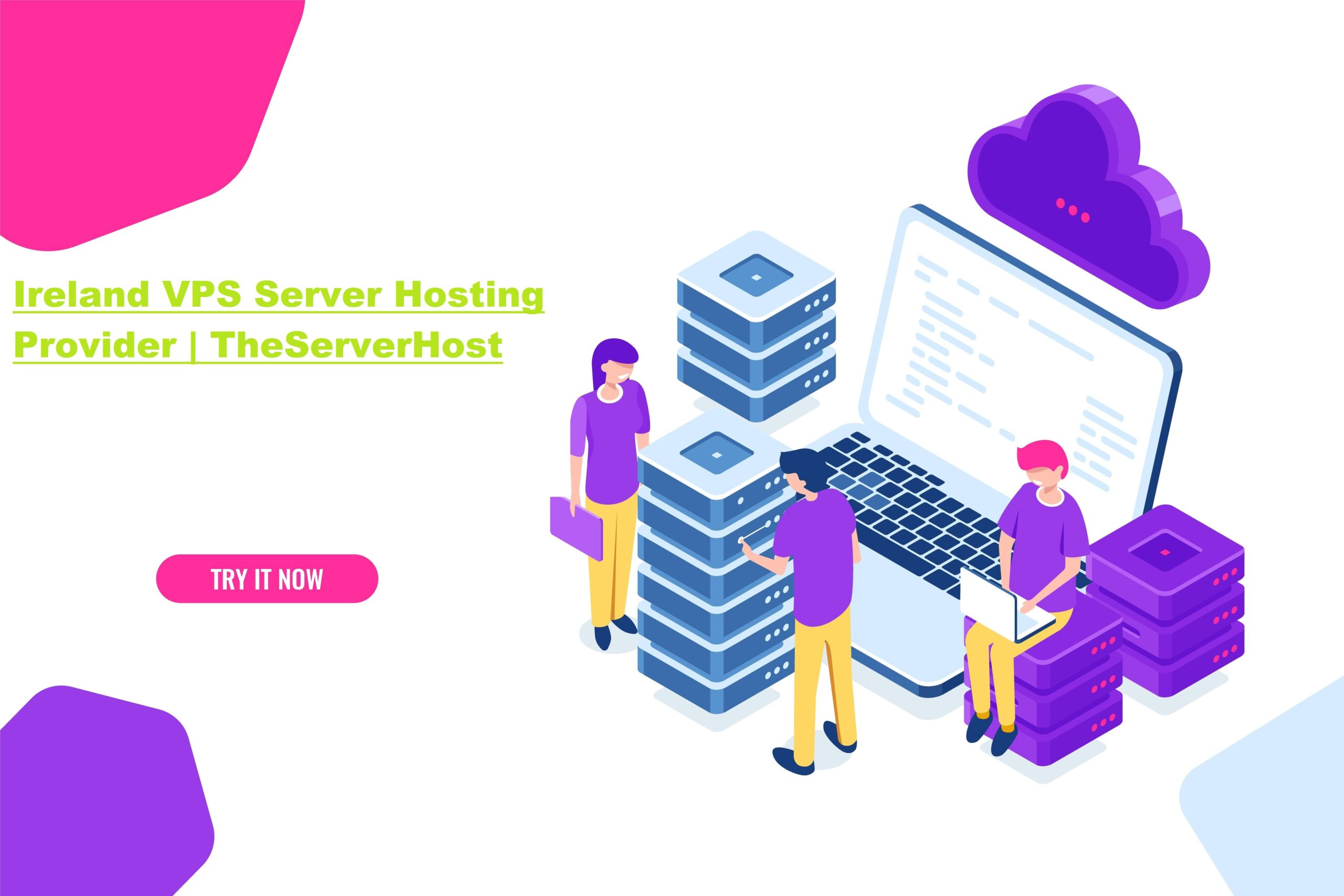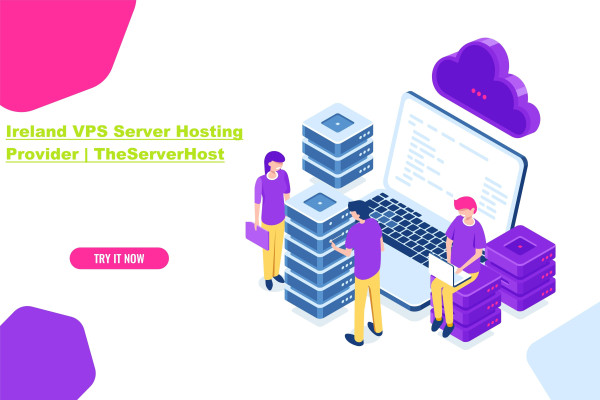Launched New Ireland Data Center for VPS Server Hosting at Dublin by TheServerHost

High Uptime Low Cost managed Irish VPS Server Hosting Plans with Dublin based IP

Delhi, Delhi, India, 23rd Jan 2023, King NewsWire – One of the most important things that an organization needs to consider before considering best Ireland data center infrastructure is security. Several techniques such as video surveillance, badge access, and emergency services are utilized to ensure that employees and assets remain safe.
Another essential consideration is ensuring that there are sufficient backups in case of any failure. The equipment in a data center must be up-to-date with security software and applications. These systems also make it easier for the facility to identify attacks in the earliest possible time.
Most of the data centers are equipped with firewalls, intruder management, and intrusion detection systems. They are also protected from power outages. To prevent these from happening, TheServerHost use systems that are more efficient than surge protectors.
In addition to these security measures, a data center also have its own backups. This is achieved through the installation of a smart control system. It will monitor the distribution and efficiency of power, as well as watch for cyber threats. If any
Client can get the computing power and redundancy that need for their business. By renting out space, client can determine the price that suits your budget. Moreover, you will be able to track key parameters such as the number of servers and the amount of bandwidth used.
Cooling is also a critical component in the operation of a data center. There are various cooling methods, such as indirect cooling, or the use of sea water, air conditioning, or outside air.
Ireland Data center facilities are designed to be scalable, and are ideal for organizations that need to expand or relocate quickly. A hyperscale data center is a large facility that houses thousands of servers. Typically, these facilities are located near the customer’s location, and are geared toward providing higher processing power.
Depending on the type of data center, the infrastructure includes cooling, power, and environmental control systems. The network cabling system is an important component of reliable communications within a data center.
Data center design has evolved over the years. Today, many organizations are taking advantage of innovative solutions that allow them to use a smaller facility and still provide superb performance. Using the concepts of edge computing, IoT, and connectivity, these facilities can deliver content and services faster.
The best data center has the following features: network equipment, capacity planning, real-time monitoring and 24/7 uninterruptible power supplies (UPSs). These are some of the best data center features. They will keep your data center running smoothly so that you can focus on your business.
Real-time monitoring
Real-time monitoring in data center infrastructure is crucial if you want to optimize your network and increase productivity. Real-time server monitoring can help improve reliability and lower operating costs. In addition, identifying issues in advance can minimize the effect of a problem that may arise.
A well-designed real-time monitoring solution can help you troubleshoot problems before they have a chance to cause a downtime. Moreover, these solutions can be used to monitor and optimize your existing infrastructure. This can help you achieve the best possible performance, minimizing the risk of downtime.
When it comes to the best way to monitor your network, there are many options. Some options are specialized for specific applications, while others are more general. Provider might also need to consider features such as change management utilities.
The best data center monitoring solution will have the ability to collect data using different protocols. Additionally, it should also be able to display data in a unified manner. Another advantage is the ability to quickly identify trends and patterns. As a result, client can better plan and allocate their resources.
Real-time monitoring can be an effective method of detecting security breaches and other critical problems. It’s also a great way to monitor client server performance, allowing provider to make educated decisions and reduce unnecessary delays.
24/7 uninterruptible power supplies (UPSs)
A 24/7 uninterruptible power supply (UPS) is an important component of data center infrastructure. These systems protect critical electrical equipment and sensitive data. They can eliminate power surges and maintain your data center’s uptime during power outages.
A UPS system can save your data center from frustrating and expensive downtime. It is designed to ensure that computers, communication systems, and other devices stay on during a power outage. The battery in the UPS will keep the infrastructure running until the source of power is restored.
There are also line-interactive and online UPS options. Line-interactive UPS have a switch that will change to battery power when the main power source goes down. This type of UPS is usually less expensive than other types, and can sustain extended undervoltage and brownouts.
A UPS can protect your data center from downtime, which can cost your business a lot of money and damage your reputation. To avoid serious financial and reputational losses, provider should get a UPS unit that is properly maintained.
Power monitoring is an essential component of an effective UPS solution. With the right software and network connections, provider can gain an intuitive view of how the UPS is operating. When a problem occurs, provider can be notified instantly.
An intelligent network management card can be installed on the UPS to integrate its shutdown management features. This can help to protect low priority loads and ensure safe, smart shutdowns.
Redundancy and fault tolerance
Redundancy and fault tolerance are important components in data center infrastructure. Without these measures, your facility could be at risk of downtime and lost revenue.
Fault tolerance refers to the system’s ability to handle workload capacity in the event of an outage. The goal is to maintain a high level of functionality without causing major performance issues. It is also closely related to high availability.
Redundancy is the process of creating backup systems. This includes everything from a redundant power supply to a backup network. It can be targeted to a single component or multiple systems, depending on the needs of your facility.
It involves running multiple identical versions of a system. Each replica is assigned to a separate compute instance. That way, if one fails, the other one is ready to take over. In addition to ensuring that all of your systems perform as they should, it helps minimize the impact of a failure on your operations.
Tiers
Data center infrastructure can be designed to meet a number of different standards. Using a tier classification system can help you choose the right structure for your business. There are four levels: Tier I, II, III, and IV. Each tier has its own requirements and is suitable for a wide range of business needs.
Tier I data centers offer basic protection against system failure. While they are not ideal for businesses that require a fail-proof service, they can be the most cost-effective way to keep your data center up and running.
In contrast, a tier IV data center is more complex and requires more redundancy. The aforementioned facilities may have enhanced storage for energy and fuel, a backup component, and a greater degree of resilience to power outages.
Although a tier IV facility can be a great investment, it is also a costly one. If you need equipment that will always be up and running, a Tier IV data center might be the best choice.
Tier IV is the most robust data center design, providing two-way redundant cooling and power. It is also designed to be fault-tolerant. For example, it will maintain a minimum of 72 hours of operation after a power outage.
Data center tier certification is especially important for businesses that provide Software as a Service (SaaS). By certifying that a data center is up to the standard of the global industry, it proves that the organization has a well-equipped infrastructure.
Security
Creating a secure data center infrastructure is vital to the integrity of your information technology (IT) environment. It requires the use of the right tools, services, and procedures. In addition, it requires continuous evaluation and improvement.
Data centers are comprised of a large number of networking and computational equipment, such as routers, switches, storage devices, and servers. They are often a target for attacks and malicious activity. These vulnerabilities can compromise the security of your information assets.
Data centers need multiple layers of security to keep your information safe. This includes protecting your data from digital threats, as well as physical attacks. The right hardware, software, and services can help you secure your information and maintain system uptime.
Physical security measures include a robust fire suppression and detection system. Security teams should be on site at all times. Likewise, data centers should have an adequate supply of backup power and telecom services.
Security features for a data center might include firewalls, intrusion detection, IP address monitoring, and DDoS protection. If provider center is located in a building, you may also want to consider installing CCTV cameras.
The first line of defense in a data center should be a strong and secure access control plan. This can be done by using biometric scanners, smart cards, or facial recognition.
Another important feature to look for in your data center is network-level encryption. This method of data protection works independently of other encryption methods.
A security plan should be based on a comprehensive analysis of the data center. Client want to look for the following elements: a clear and concise security policy, physical security controls, logical security measures, and redundancy and failover measures.
For Ireland VPS Server visit https://theserverhost.com/vps/ireland
For Ireland Dedicated Server visit https://theserverhost.com/dedicated/ireland
Media Contact
Organization: TheServerHost
Contact Person: Robin Das
Email: support@theserverhost.com
Website: https://theserverhost.com/
Address 1: 493, G.F., Sector -5, Vaishali, Ghaziabad 201010.
City: Delhi
State: Delhi
Country: India
Release Id: 2301232275
